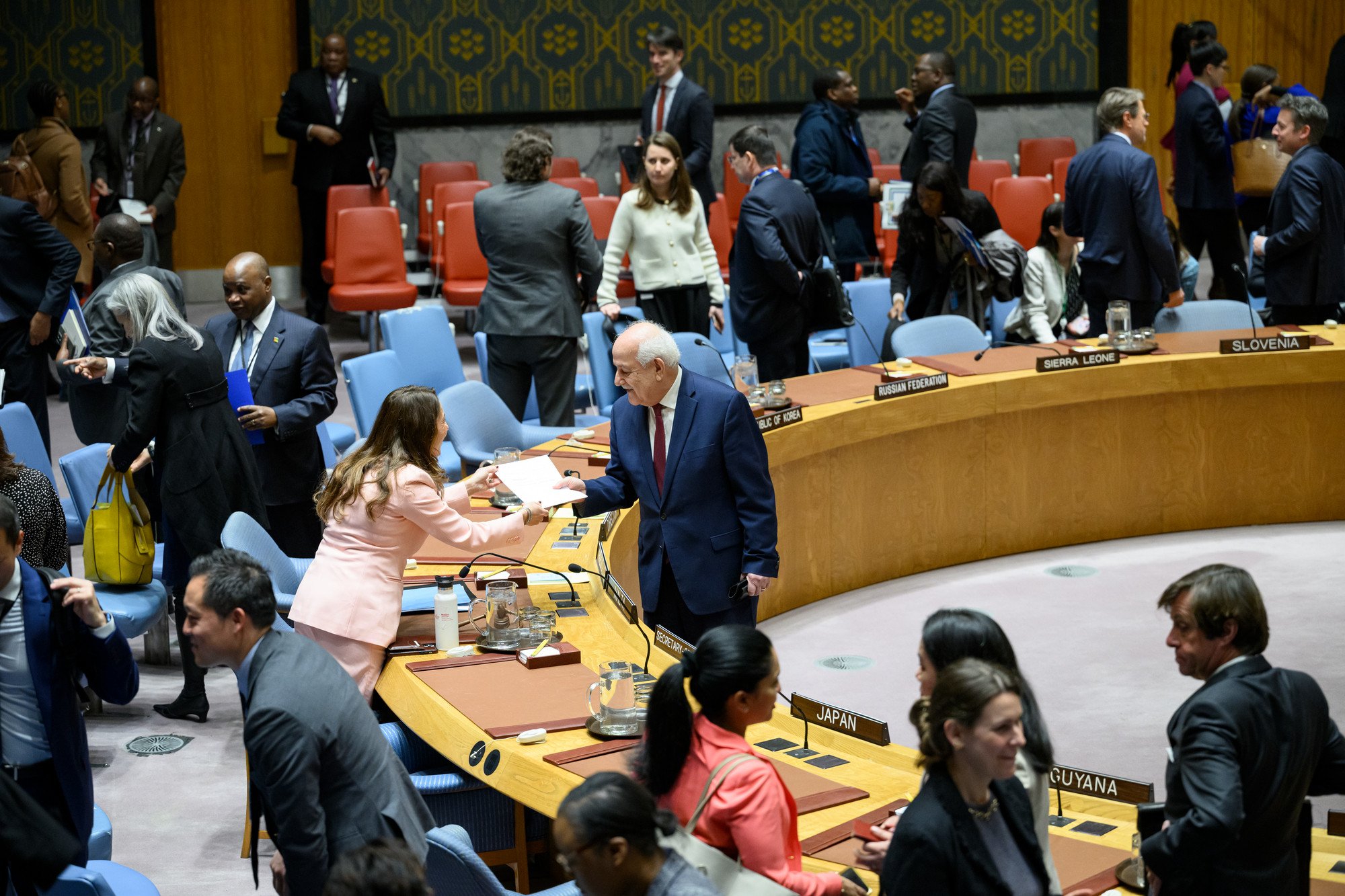
Gaza war: backlash over US support for Israel as China makes ‘public relations gain’
- Beijing has doubled down on its pro-Palestinian stance while Washington is under pressure over its policy of arming Israel
- But China ‘can hardly play the role of peacemaker’ given its modest political influence in the region, according to observer
As the US faces a growing diplomatic backlash over its support for Israel amid a mounting death toll in Gaza, China is benefiting from its reputational damage, observers say.
As the UN Security Council failed to reach a consensus on the Palestinian application for full United Nations membership – it was opposed by five nations, including a veto by the US – China on Thursday reaffirmed its support for the bid, and the Palestinian cause.
Foreign ministry spokeswoman Mao Ning said the humanitarian crisis in Gaza was a reminder that “the only way to end the vicious cycle of Palestinian-Israeli conflicts is to fully implement the two-state solution, establish an independent state of Palestine and redress the historical injustice long suffered by the Palestinians”.

Observers say China appears to be gaining diplomatically from this stance.
Beijing has expanded its economic interests and diplomatic presence in the Middle East since President Xi Jinping came to power, as the US retreats from the region.
“So in a sense, how the US allocates its resources, builds its image, provides support for its allies and whether the US heeds public opinion on the Palestinian issue have all become a point of competition between the two countries,” he said. “Because clearly, the US calibrates those decisions with an eye on China.”
Zhu said Beijing had dialled up its criticism of Israel’s military operations and Washington’s “biased” support for its top ally in the Middle East, while increasing efforts to promote itself as an impartial peace broker.
In a rare move, China wielded its veto power along with Russia at the UN Security Council on March 22, turning down a US-led resolution calling for a six-week ceasefire to allow humanitarian aid to be delivered.
Responding to criticism that Beijing was using the conflict to counter the US, China’s acting UN representative Dai Bing last week accused Washington of “manipulating” the United Nations body to set preconditions for a ceasefire.
In Wang-Blinken call, China urges US to play constructive Middle East role
Zhu said the US dilemma over its unwavering support for Israel was “an opportunity” for Beijing to seize the moral high ground.
“The US has for years tried to put the Palestinian issue on the back burner. Now that its pro-Israel stance has backfired with the eruption of the worst conflict in decades, it is natural for China to refute and counter-attack the US’ flawed policies – which is in line with the majority opinion of the international community,” he said.
Emil Avdaliani, an international relations professor at European University in Tbilisi, Georgia, said China benefited from US distraction in the Middle East, Ukraine and the confrontation between Russia and the West.
“The US could be less able to be actively involved in the Indo-Pacific region,” Avdaliani said.
In a move signalling possible changes to Washington’s stance, US President Joe Biden last week called Israel’s approach to the war “a mistake”.
“For China, these developments represent one continuous crisis of the collective West and a sign of rapidly changing global order. And since the global system is changing, China expects similar crises to erupt across Eurasia,” Avdaliani said.
Sourabh Gupta, a senior policy specialist with the Institute for China-America Studies in Washington, said although the US had seen reputational damage over Gaza, any gains for China were “superficial and transient”.
“In the absence of an iota of fairness in Washington’s approach, [Beijing] will simply sit back and milk the public relations gain on the Arab Street,” he said.
“On the other hand, given its modest political influence in the Middle East, China can hardly play the role of peacemaker that it has lately sought to project itself as – or even be part of the solution to many of the pressing challenges in the region.”
Assaf Orion, a retired Israeli brigadier general and a senior research fellow at Israel’s Institute for National Security Studies, also said this was clearly not a net gain for China yet, when seen as a whole.
“While the US has demonstrated its steadfast support of an ally – which informs its Asian partners and allies elsewhere – and has shown resolve in countering Houthi attacks on international waterways, China is clearly unable to provide any kind of international security even to its own vessels,” he said.
“Blocking a UNSC ceasefire resolution because it was proposed by the US shows Beijing’s true face about caring about Palestinians – clearly less important for it than countering US moves.”
Orion warned that siding with Hamas and Iran would threaten Beijing’s interests in the Middle East and its global and regional reputation, as well as narrow its access to Israeli business and technology.
Zhu of Lanzhou University said the Gaza conflict also offered “a rare opportunity” for Beijing and Washington to cooperate.
“There is both rivalry and cooperation between China and the US in the Middle East, which has been a feature of bilateral ties lately,” Zhu said.
“The Palestinian-Israeli issue requires close coordination among major powers – and importantly, China has no interest in seeking to dominate or displace the US in the region,” he said. “So there is opportunity and space for cooperation.”


